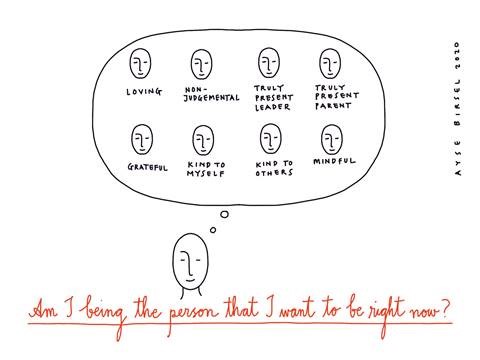

This week’s edition begins with a tribute to Sir Ken Robinson, a world-renowned thinker on education innovation who recently passed away. His 2006 speech remains the most popular TED talk ever with over 67 million views, and has been transformative in how many of us think about educating our children and the future of 'seeing our children for the hope they are'.
On the topic of education, I have followed this up with an article on how to teach your children about stoicism, and another on the other end of life; how to talk with your parents about their finances.
It's an old saying that "money can't buy happiness", but recent research has shown that in reality, the relationship between money and happiness is more nuanced. Greater income levels are associated with greater levels of emotional well-being (at least up to a certain point). Money is associated with higher levels of happiness, at least when it's spent in certain ways (e.g. on experiences shared with other people or outright on others, rather than spent on 'stuff') and we are increasingly recognising the real-world trade-offs between earning more money versus having more time with our friends and family, as well as what terms such as 'enough' or 'more' really mean in the context of a rich life. So what are the alternatives to purely monetary wealth? Morgan Housel has an interesting take on this.
The father of modern strategy, Michael Porter, quotes 'the essence of strategy is choosing what not to do' which links nicely to this McKinsey article about Roger Federer and badminton.
No-one ever achieved elite performance without a coach, and I am so grateful for my own great friend and mentor Mick Todd, who runs a brilliant global coaching business called 2bLimitless. Given it is the quality of the questions you ask yourself that determine the value you receive, and the central question of the great Marshall Goldsmith's post on mindfulness is actually contained in the name of Mick's company, I absolutely loved this image that was included in his post...
Am I being the person that I want 2b right now?

This week's meditation
There's a reason Warren Buffett is an ultra-billionaire as he turns 90: He grasped the power of compounding at the age of 10. The sooner the rest of us fully understand it, the better off we’ll be…
"Thoughtful investors can toil in obscurity, achieving solid gains in good years and losing less than others in the bad. They avoid sharing in the riskiest behaviour because they’re so aware of how much they don’t know and because they have their egos in check. This, in my opinion, is the greatest formula for long term wealth creation – but it doesn’t provide much ego gratification in the short run." Howard Marks
A question for you
Your doctor shocks you with the news that you only have 24 hours to live. Notice what feelings arise as you confront your very real mortality. Ask yourself: What did you miss? Who did you not get to be? What did you not get to do?
Enjoy the ‘light’ reading and happy weekend!
Do schools kill creativity? https://www.ted.com/talks/sir_ken_robinson_do_schools_kill_creativity?language=en
How to teach your children about stoicism: https://dailystoic.com/teach-children-stoicism/
How to talk with your parents about their finances: https://www.getrichslowly.org/talk-with-your-parents/
Alternative forms of wealth: https://www.collaborativefund.com/blog/alternative-forms-of-wealth/
Could Roger Federer be as successful playing badminton? https://www.mckinsey.com/business-functions/strategy-and-corporate-finance/our-insights/the-strategy-and-corporate-finance-blog/could-roger-federer-be-as-successful-playing-badminton
Do you want to be mindful? https://www.linkedin.com/pulse/do-you-want-mindful-marshall-goldsmith/?trk=eml-email_series_follow_newsletter_01-hero-45-title_link&midToken=AQGQn29-_gaZ4A&fromEmail=fromEmail&ut=0j1CL78oKnH9o1
2bLimitless: https://www.2blimitless.com/
